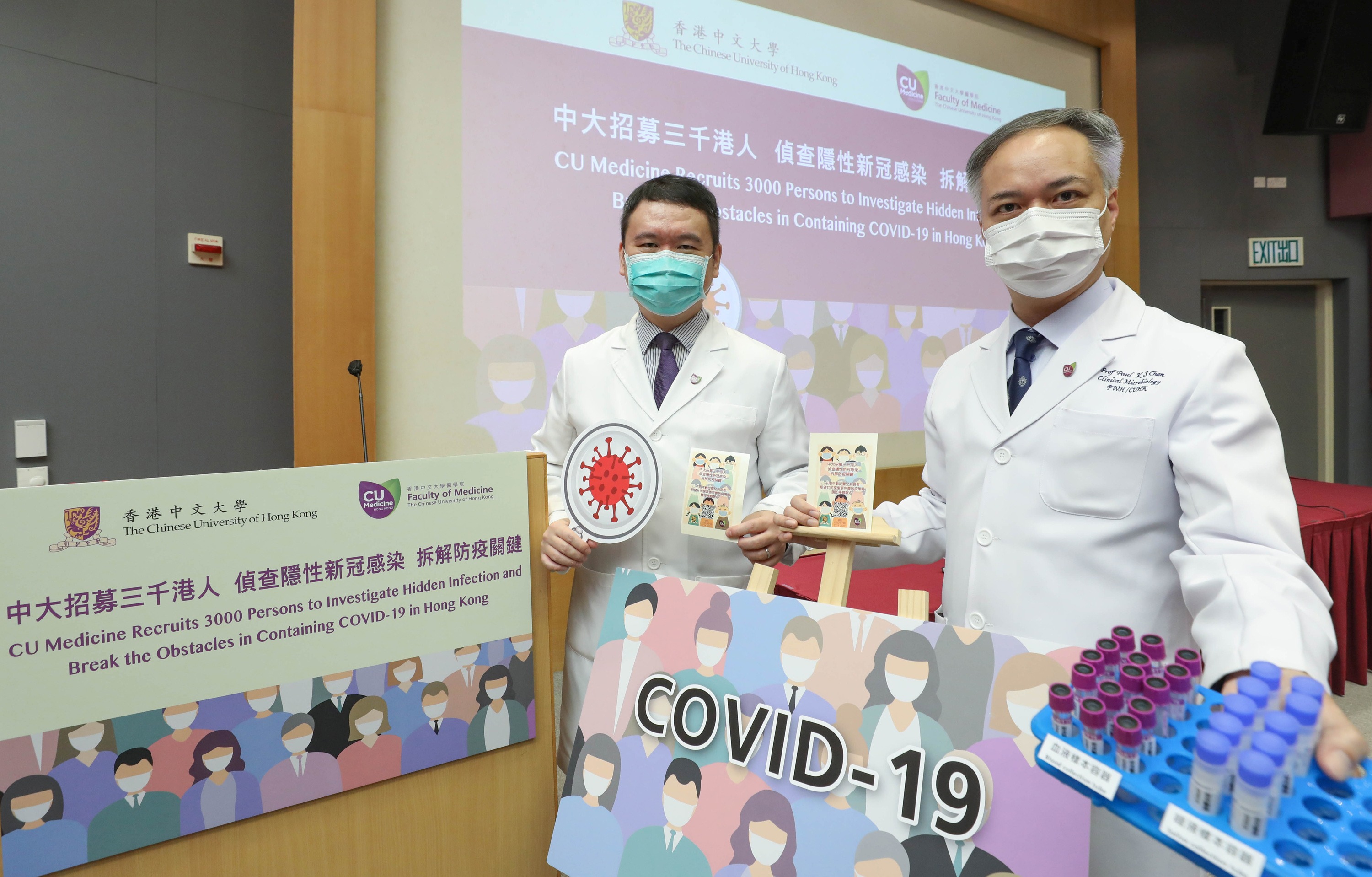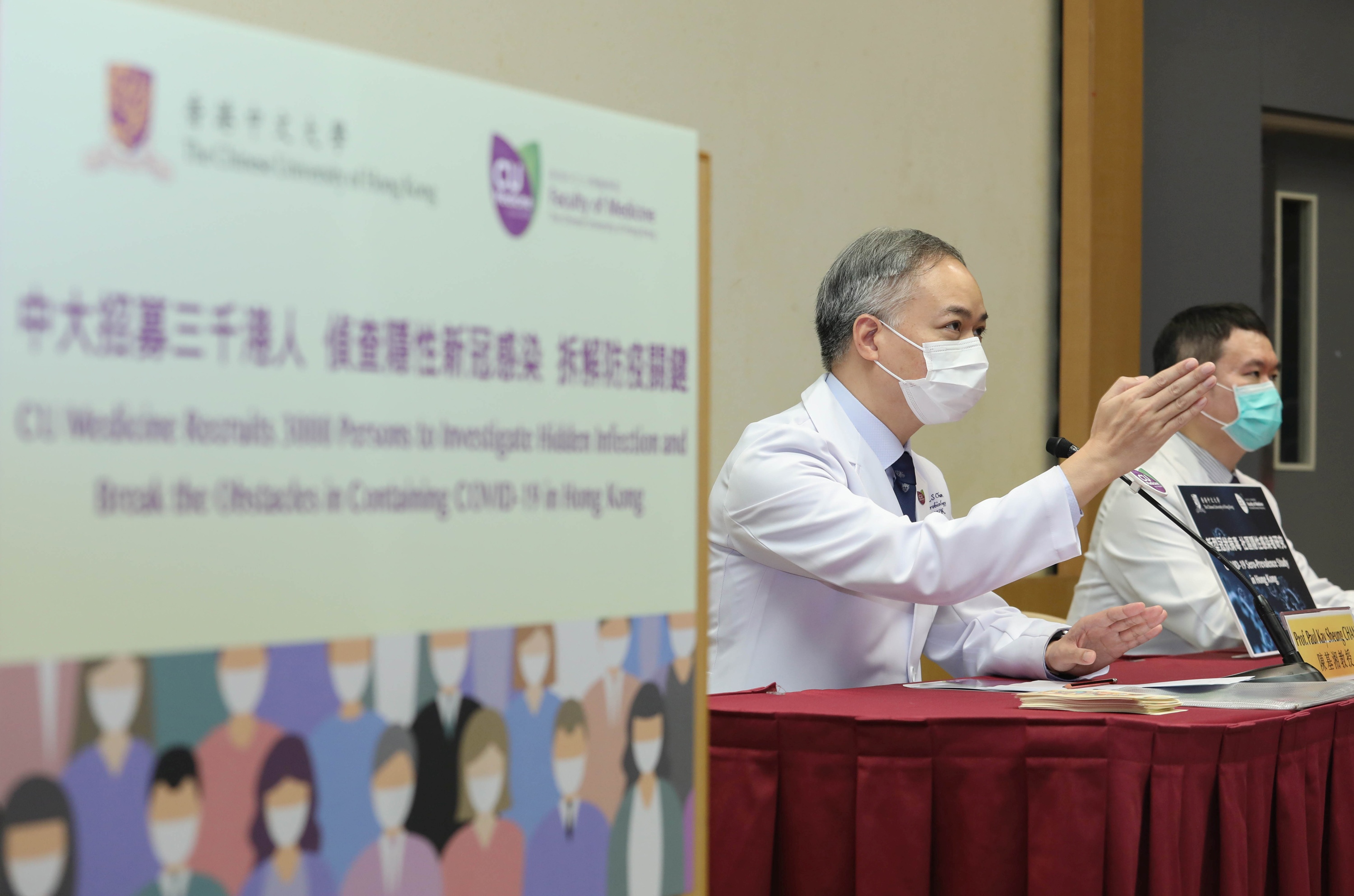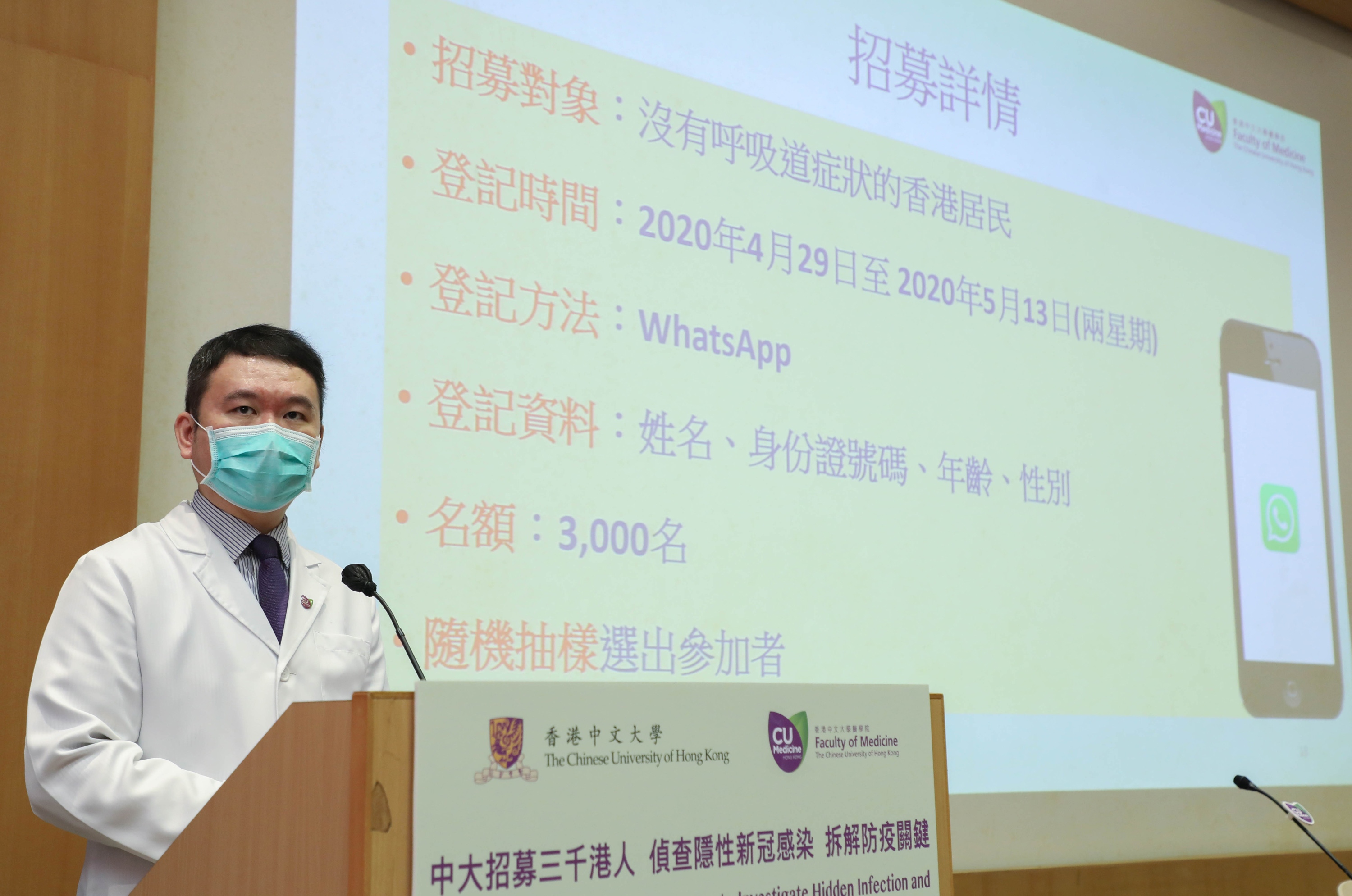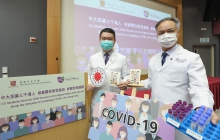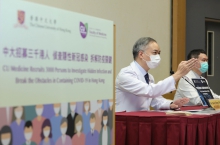CUHK
News Centre
CU Medicine Recruits 3,000 Persons to Investigate Hidden Infection and Break the Obstacles in Containing COVID-19 in Hong Kong
COVID-19 is affecting every corner of the world with its disastrous damage to human health and economy. Hidden infections that skip the usual surveillance system pose an obstacle to controlling the spread of COVID-19. There is currently no information on hidden COVID-19 infection in Hong Kong.
The Faculty of Medicine at The Chinese University of Hong Kong (CU Medicine) is taking the lead in investigating hidden COVID-19 infection. The Faculty is inviting 3,000 persons of any age, from babies to the elderly, to assemble in a joint effort to explore better strategies, and make our society better prepared to fight against the future waves of COVID-19. The study is supported by the Health and Medical Research Fund under the Food and Health Bureau of the Hong Kong SAR Government.
Professor Paul Kay Sheung CHAN, Chairman of the Department of Microbiology, CU Medicine who designed the study, said, “Serology tests can serve two purposes. The first one is to diagnose if a person is infected at that time. However, we do not recommend applying serology tests in such a way because molecular tests (PCR) are superior in performance. The second application of serology tests is to determine if a person has ever been infected in the past, and it is the only available method. We shall apply serology tests in such a way as to detect hidden infections that occurred in Hong Kong over the last few months. The US Centers for Disease Control and Prevention has warned that 1 in 4 coronavirus infections could be asymptomatic. And in some western cities where antibody testing has been done, results showed the actual infections vastly exceed the official counts. Therefore, it is important for us to understand the extent and characteristics of hidden infections (mild and asymptomatic) in Hong Kong. This information is instrumental in evaluating and further improving our containment strategies, to make Hong Kong well prepared for the coming waves of COVID-19.”
Recruiting 3,000 persons from the community
The initial phase of recruitment of subjects will start from today (29 April 2020) for two weeks. Details of enrollment procedures are as follow:
- All age groups, from babies to the elderly, are welcome.
- Interested parties to send a WhatsApp (tel: 6590 5746; 6714 0697) message to indicate interest in participating.
- They will be directed to answer a few screening questions online via mobile phone.
- Appropriate registrants will be randomly selected. There is a quota for each age and sex group. District of residence will also be considered.
- Subjects selected for study will be given an appointment at CUHK Lek Yuen Family Medicine Teaching Clinic. Blood and saliva will be collected from adults and saliva from children.
- Results will be given to participants within 6 to 8 weeks.
The research team will also provide special free tests for healthcare workers and confirmed cases as a service. Interested parties can register in the same way.
Professor Martin Chi Sang WONG, Professor of The Jockey Club School of Public Health and Primary Care, CU Medicine said, “COVID-19 has become a pandemic causing substantial morbidity and mortality. Many health experts have suggested that this new coronavirus pandemic is a long battle in which everyone should stay vigilant. Thanks to the tremendous efforts by Hong Kong people in social distancing and wearing protective equipment, the situation is now more under control. Our study aims at determining what proportion of people in Hong Kong have been subject to hidden COVID-19 infection in the past few months. We shall identify their characteristics and explore strategies to minimize the spread when Hong Kong is challenged by coming waves of COVID-19.”
An earlier research led by Professor Paul CHAN has given proof that coronavirus shedding in stool is common and can be an alternative screening tool for asymptomatic patients. The team joined with the Department of Health to provide free stool screening tests for COVID-19 in babies and children arriving at the airport and successfully detected babies who carry the virus. The early case identification in the community could help contain the virus from spreading. Clinical staff and researchers from many disciplines at CU Medicine are researching and assisting in the development of diagnostic tests and treatment for COVID-19. Different sets of clinical guidelines have been compiled to protect both patients and clinical staff.
CU Medicine is taking the lead in investigating hidden COVID-19 infection. The Faculty is inviting 3,000 persons to assemble in a joint effort to explore better strategies. (From right) Professor Paul Kay Sheung CHAN, Chairman of the Department of Microbiology who designed the study and Professor Martin Chi Sang WONG, Professor of The Jockey Club School of Public Health and Primary Care, of CU Medicine.
Professor Paul CHAN explains that study subjects are being tested if their bodies contain Immunoglobulin G (IgG) antibody, which is to detect if they have ever been infected, but not as a tool to test current infection.


